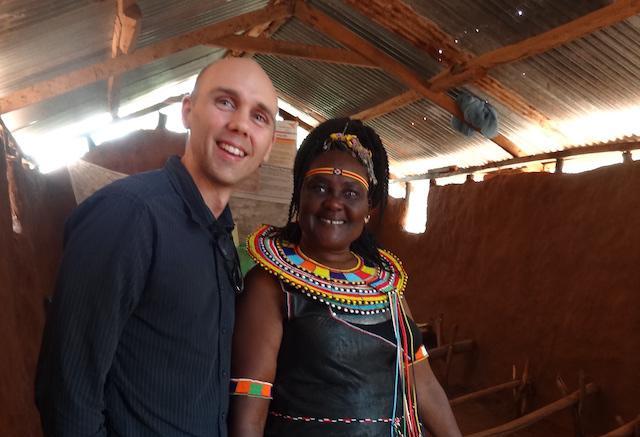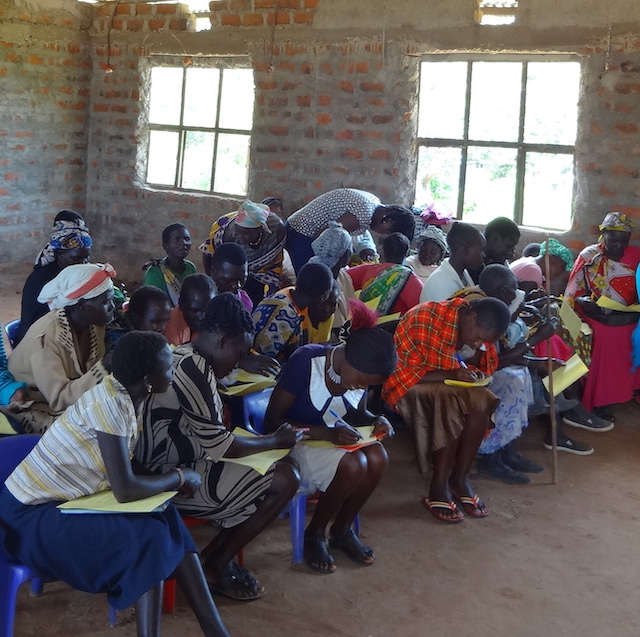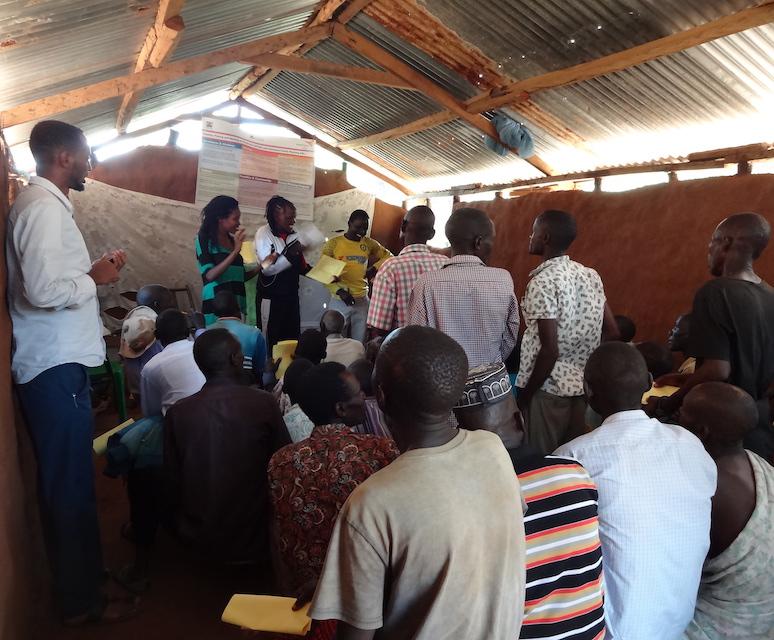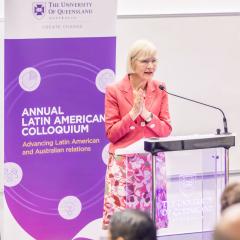UQ School of Economics researcher Dr David Smerdon has been working with local NGOs in Somalia to find policy solutions to eradicate FGC.
Female genital cutting (FGC) is the practice of cutting or removing part of the female genitalia for non-medical reasons. In many countries of the developing world, a girl’s transition to womanhood can be marked by some form of this tradition. In Somalia, FGC is almost universal: roughly 98 per cent of girls experience it, usually around the age of seven to 10. Somalia also has one of the highest rates of ‘infibulation’, the most extreme form of FGC. It is a world apart from male circumcision; the girl is bedridden for days or weeks afterwards, with her legs crossed, until the bleeding subsides and the wound heals.
There are severe health consequences at the time of cutting, including risk of infection and haemorrhaging. Long-term effects include frequent infections, decreased sexual function, psychological trauma, and a high risk of severe, potentially fatal complications at childbirth, which increase with every subsequent birth. In a country where the average fertility rate is more than six children per woman, the total impact of FGC on the Somali population is massive.
If it’s illegal, why does it continue?

Dr David Smerdon has been working with local NGOs in Somalia to find policy solutions with the aim of eradicating FGC. The practise is illegal in Somalia and has criminal repercussions. However, like most issues in development economics, the explanation for why this practice endures is complicated.
“Several reasons have been proposed for the tradition’s persistence – religion, superstition, level of education, and patriarchal power, but no single story holds up,” Dr Smerdon said.
FGC is more common in Islamic countries. In the Kenyan region of West Pokot, which Dr Smerdon recently visited, the proponents are almost exclusively Christian. And in most countries where FGC is practised, parents are already well informed about the health consequences of FGC, yet the proportion of affected girls in richer, better educated families is usually only marginally lower than the average.
“During fieldwork, people gave different and at times surprising reasons for why FGC was conducted,” Dr Smerdon said.
“Many parents, however, spoke about the marriage prospects of their daughters in the future. Some of the women said that if their daughters weren’t ‘circumcised’, no man would marry them. And in impoverished rural areas, an unmarried daughter can be a significant burden.”
Pluralistic ignorance – the silent majority wants FGC to stop
“Surprisingly, most of the people I spoke to viewed FGC the same way that we do: a terrible social norm that they wished gone. FGC is simply ‘our way’, they said, a tradition that has been going on for as long as they can remember.”
Rebelling against tradition, however, is a dangerous business for Somalis. In remote rural communities, families rely on their local networks in order to survive; social ostracism can have dire consequences.
Dr Smerdon’s research posits that if social norms are at the heart of FGC’s persistence, then perhaps they can also be part of the solution.
“We suspected that FGC might be driven by pluralistic ignorance, a phenomenon whereby the majority of people in a group mistakenly believe that they hold minority views, in this case those opposed to FGC,” he said.
Pluralistic ignorance is often found in issues that are sensitive, or where it is socially risky to publicly signal your true opinion. Could this be driving FGC as well?
Could anonymous ballots be the answer?
 Researchers conducted a large-scale survey across multiple Somali communities in conjunction with Save the Children Somalia. They surveyed 2500 households in 100 villages.
Researchers conducted a large-scale survey across multiple Somali communities in conjunction with Save the Children Somalia. They surveyed 2500 households in 100 villages.
“Findings showed that most respondents thought that the majority of their community favoured FGC. But in reality, people often overestimated the level of actual support for the practice,” Dr Smerdon said.
The findings inspired the research team to design a novel, low-cost intervention designed to help communities break down the power of this social norm.
“Our idea was simple: to lift the veil on pluralistic ignorance by allowing people to safely signal their true feelings about FGC, without fear of reprisals,” Dr Smerdon explained.
“We were particularly motivated to create a tool that was simple, low-cost, and did not rely on outside expertise, so that if successful, it might easily be scaled up to reach all of Somalia’s many rural communities and also be adopted in other countries affected by FGC.”
The intervention involves gathering the villagers for an anonymous ballot concerning their views on eradicating FGC. Local community leaders then publicly count and reveal the tally, announcing the true level of support. This is immediately followed by an opportunity for locals, hopefully buoyed by the revelation of pluralistic ignorance, to publicly announce their support for discontinuing the tradition in their community.
“In short: we wanted people to first realise that they weren’t alone in their views, and then provide them with a safe opportunity to coordinate together,” Dr Smerdon said.
Testing the theory in rural communities
Last June, Dr Smerdon travelled to Kenya to train Somali assistants and run ‘pilot’ sessions in FGC-prevalent communities.
He said the results were promising.
“The numbers for the poll and for the public announcements matched up, which is consistent with the idea that our tool might help to break down pluralistic ignorance,” Dr Smerdon said.
The sessions were designed to be as unimposing and community-led as possible, with almost no direct ‘leading’ coming from the researchers.
“Many rural communities in Africa are distrustful of outsiders or institutions telling them what to do for their own good, and not without some justification. This may explain in part why even the Somali government has failed to stop FGC from being practised, despite declaring it illegal.” Dr Smerdon said.

“The feedback from our ‘light touch’ procedure in the sessions was overwhelmingly positive. Several iterations of tweaks followed and soon we were ready to launch.”
The full intervention ran as a large randomly-controlled trial across 150 communities in Somalia from late 2018 to early 2019. This year, the research teams will return to the communities to check whether there has been any change in attitudes or behaviours to FGC as a result.
“It is hard to predict what we will find. Changing social norms is difficult, and international organisations have been trying for 20 years to eradicate FGC in Somalia,” Dr Smerdon said.
“But there are good reasons to get it right, because bad social norms underlie not only FGC but many other important issues across the world, such as child marriage and HIV. That is why we’ve been meticulous at every stage of this research project, from theory to design to implementation, and we remain optimistic. After all, given the importance of this issue, it is worth our very best shot.”



